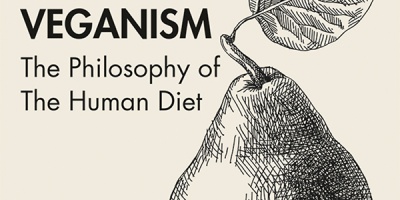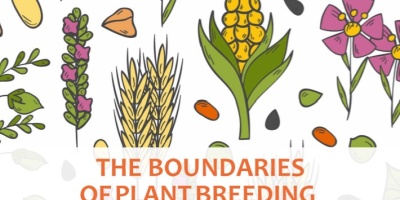In this piece, Tom Kuehnel introduces the plant protein crop initiatives supported by the Vegan Society within the context of Brexit and protein policies.
Tom Kuehnel is an FCRN member and the Campaigns and Policy Officer for The Vegan Society. The Vegan Society is the oldest vegan organisation in the world; its founding members coined the term ‘vegan’ when it was founded in 1944. The Vegan Society works towards a vegan world for the benefit of animals, people, and the planet. You can contact Tom at: tom.kuehnel@vegansociety.com
The debate around sustainable diets is gaining momentum, and it is in large part down to networks like FCRN and its members who are leading the charge. Given the recent post by Sue Dibb from the Eating Better Alliance, we at The Vegan Society wanted to contribute some further commentary on the potential for a sustainable food future in the UK after Brexit.
The animal agriculture industry’s negative impact on the planet has been well documented. Despite this, the necessary changes have been persistently neglected – in both policy and practice – for decades.
The agriculture industry as a whole is struggling to make any significant breakthroughs towards tackling climate change. To put it into context - in the last two years the UK power sector has already made the same level of reduction in emissions (25%) that the agriculture sector is projected to make in the next thirty-five, and it is predicted to trail transport, buildings, waste, and industry in terms of emission reductions1. Despite technological advances in other industries, it is clear that the agriculture sector should and could be doing more to reduce its emissions.
It is inevitable that Brexit will shake up our agricultural system. Talks are well underway about what a post-CAP British Agricultural Policy will look like, and although Brexit will pose challenges for UK food and farming, there will also be opportunities in equal measure. Could protein crops, like peas, beans, and lentils, provide a solution to the wide-ranging demands on UK agriculture - with benefits to farmed animals, the health of the population, and the health of the planet?
Solutions
The Vegan Society has been working on plant protein crop policy for a couple of years now with the Grow Green campaign. We’re delighted that New Economics Foundation (NEF) has written our latest report, Solutions for the Farm of the Future, outlining the need for a shift to growing more plant proteins - for example pulses like peas and beans - and identifying the policies which might enable such a shift.
Why focus on pulses? Pulses are great for the environment; they are nitrogen fixing, which typically results in a reduced reliance on artificial fertilisers. They are good for people; being protein-rich, and high in fibre – fibre is persistently lacking in UK diets. And of course they are good for farmed animals in that they offer an alternative to meat in UK diets.
The report looks at the barriers to the cultivation of protein crops in the UK, and in doing so, identifies possible solutions in the form of policy recommendations.
So what are the barriers and how can we overcome them?
At present, the UK is one of the four EU member states that has chosen not to support protein crops through CAP’s Voluntary Coupled Support (VCS). The UK could, at the very least, match the support levels for protein crops used in other EU member states like Ireland with the creation of a designated Protein Aid Scheme. Under the Irish €3m Protein Aid Scheme, introduced in 2015, farmers are eligible for €250-280 per hectare for their protein crops. In the first year of implementation, this scheme resulted in a 300% increase in the production of protein crops.
The problem is, Ireland’s Protein Aid Scheme was designed to provide an indigenous supply of protein for animal feed rather than for human food2 illustrating the point that support to increase the production of UK grown protein crops will not of itself guarantee a greater consumption of plant proteins in the UK’s diet. There must also be an effort to get plant proteins for human consumption into the UK food system to realise the health and environmental benefits. There is a danger that without wider reform, protein crops could simply be grown for the animal feed market, thereby undermining the wide-ranging benefits a shift in our agricultural system would have. That said, the Irish example demonstrates that with the right support, VCS can be a boon for UK growers to the human consumption market.
Explicit recommendations to serve plant proteins in public procurement guidelines would improve consumer knowledge, and would also help stimulate the UK pulse market. A farmed animal tax that accounts for the environmental, health, and intrinsic losses from animal farming could also be implemented to make plant proteins a more profitable alternative to animal protein.
The fall in the number of farms and farmers in the UK is well- documented. In just ten years, one third of UK farms have been lost, most of which are small-scale3. This is arguably one of the biggest issues for UK agriculture to address. Fortunately, the Scottish Government can provide a useful model with the success of a number of new entrant schemes included in the Scottish Rural Development Programme. A New Entrants Scheme that targets access to land, start-up costs, and training should be created. The scheme could be paired with the Protein Aid Scheme for ease of application.
A report by The Andersons Centre about opportunities and barriers to growing peas and beans in the UK argues that decreasing incentives for commercial investment and research in the crops is a result of the declining area of UK peas and beans cultivated4. Canada provides a good case study for the importance of research in supporting the development of protein crops. Research into pulses played a significant role in Canada becoming the world’s largest producer. The Grow Green report recommends match funding the protein crop industry levy over a ten-year plan of research support.
Changing the way that we farm and eat in the UK is made all the more difficult when we have to contend with entrenched interests and power structures. The farming business is a distant thought for many people in the UK. However, the industry continues to be positively perceived, as demonstrated by the support of MPs for the ‘Back British Farming’ campaign or the use of farming imagery on many food products. One consequence, however, is that supporting British farms can mean supporting existing farms and supply chains rather than a new potential farming business. This presents a barrier for the expansion of protein crops, especially as targeted as a replacement for animal proteins in the UK food system. Future protein crop farmers do not yet have a voice, and so policy-makers should consult from a wider range of stakeholder views and consider the views of groups not formally represented.
Conclusion
There is a compelling case for a shift to plant protein agriculture, and an opportunity for the UK could lead the way in sustainable and healthy food systems, acting as a role model for other countries to follow.
We know we have a long way to go to get the public to put pulses on their plates. For example, in order to meet the UK Government’s Eatwell Guide on the same budget, we would have to increase our bean and pulse consumption by 90%5.
However, there have been exciting developments around this forgotten food. The UN declared 2016 the International Year of the Pulses; British bean and pulse producers, Hodmedod’s, recently won Best Food Producer in the BBC Food and Farming Awards; and the British Dietetic Association recently updated its sustainable diets policy to recommend the consumption of plant proteins, like pulses, as an alternative to meat.
It’s clear that if we want UK diets to be sustainable, healthy, affordable, and ethical, then protein crops represent a win-win-win-win.
You can find out more about The Vegan Society’s Grow Green campaign, and read the report, here: www.vegansociety.com/growgreen.
References
- Murray J. (2015). UK power sector slashes emissions by almost a quarter in just two years. Business Green. Retrieved from: https://www.businessgreen.com/bg/news/2439903/uk-power-sectorslashes-emissions-by-almost-a-quarter-in-just-two-years
- Department of Agriculture, Food and the Marine. Minister Creed Announces Payments under €3m Protein Aid Scheme. Retrieved from: https://www.agriculture.gov.ie/press/pressreleases/2017/december/title,113597,en.html
- Campaign to Protect Rural England. The future of farming and the countryside. London: Campaign to Protect Rural England. Retrieved from: http://www.cpre.org.uk/what-we-do/farming-and-food/ farming/the-issues
- The Andersons Centre. (2015). Revealing the opportunities for growing peas and beans in the UK. John Innes Centre: London. https://www.jic.ac.uk/media/cms_page_media/2015/7/27/Potential%20 of%20UK%20Pulses_Andersons-FINAL_240615.pdf
- Scarborough, P., Kaur, A., Cobiac, L., Owens, P., Parlesak, A., Sweeney, K., Rayner, M. (2016). Eatwell Guide: Modelling the dietary and cost implications of incorporating new sugar and figure guidelines. British Medical Journal 6. Retrieved from: http://bmjopen.bmj.com/content/bmjopen/6/12/e013182.full.pdf










Post a new comment »